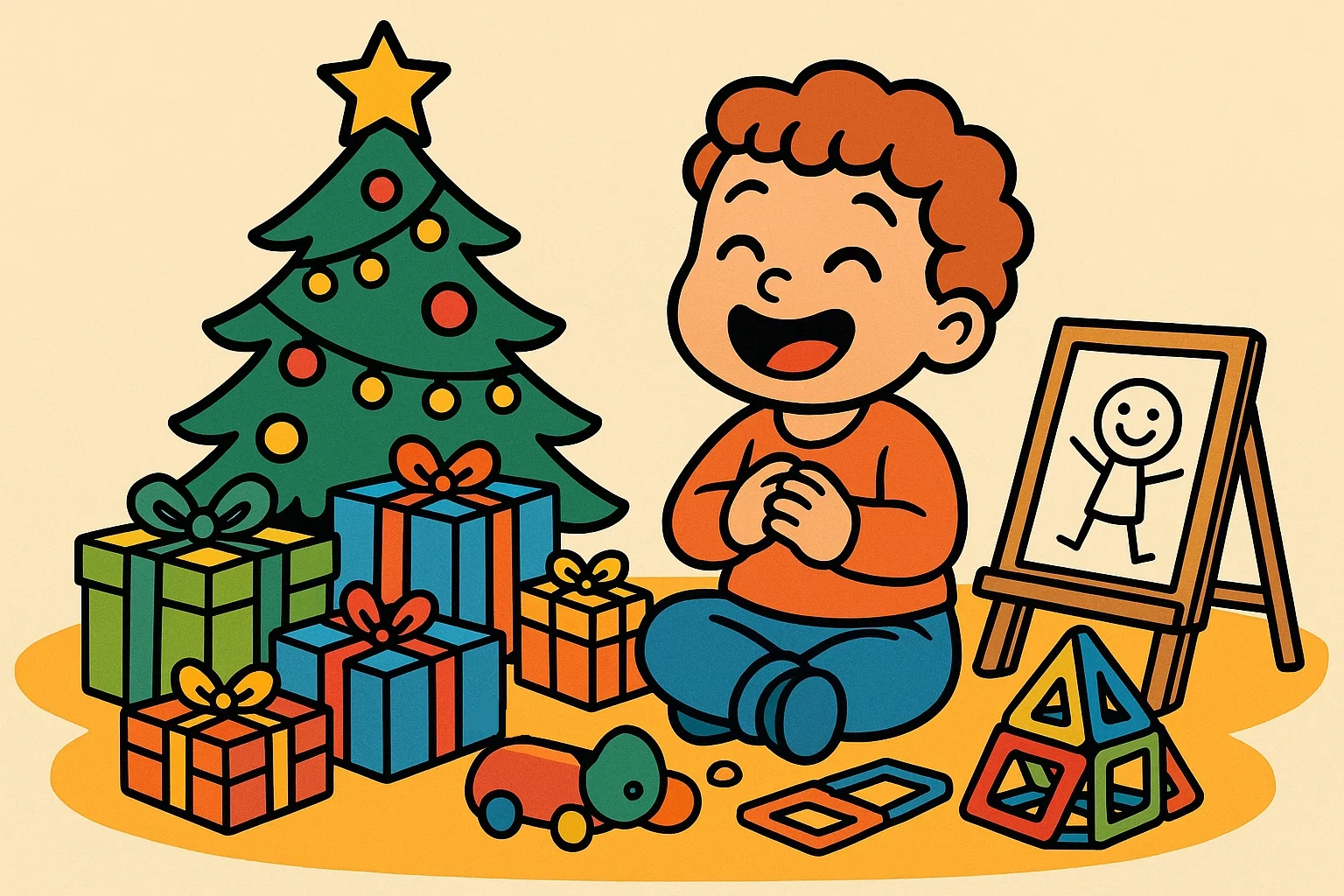The holiday season brings excitement for families, especially when selecting meaningful christmas gift options for young children. Finding the perfect presents for preschoolers requires understanding their developmental needs and interests. This comprehensive guide explores diverse gift ideas that support learning, creativity, and fun for children ages three to five.
Preschoolers are at a magical stage where they’re developing independence, expanding their vocabulary, and discovering the world through play. The best gifts for this age group combine entertainment with educational value, helping kids build essential skills while having fun. Whether you’re shopping for your own child, grandchild, or a special little one in your life, these recommendations will help you choose presents that create lasting memories.
Educational Skill-Building Toys
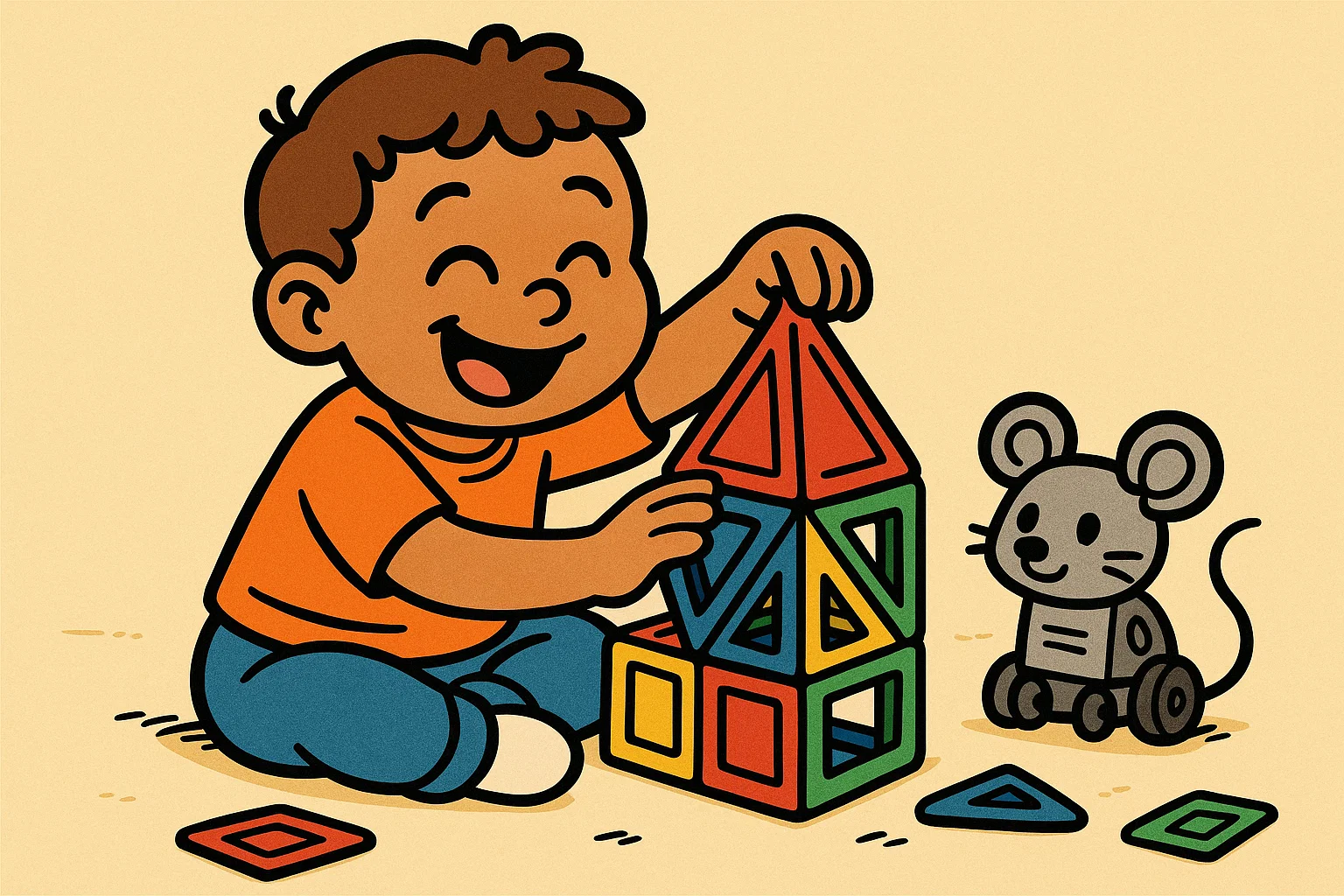
Educational toys provide the foundation for lifelong learning while keeping children engaged and entertained. These gifts help preschoolers develop critical thinking skills, problem-solving abilities, and creativity through hands-on exploration.
Intro Coding STEM Toys
Early exposure to coding concepts helps children develop logical thinking and problem-solving skills. Age-appropriate coding toys use visual blocks, buttons, and simple commands that preschoolers can understand. Popular options include robot mice that navigate mazes, programmable cars that follow directional commands, and screen-free coding boards that teach sequencing.
These toys introduce fundamental programming concepts without overwhelming young minds. Children learn cause-and-effect relationships, pattern recognition, and basic logic skills. Many coding toys also incorporate storytelling elements, making the learning process more engaging for this age group.
Top Features to Look For:
- Screen-free design for healthy development
- Colorful, chunky pieces easy for small hands
- Step-by-step visual instructions
- Multiple difficulty levels
- Interactive feedback sounds or lights
Magnetic Building Tiles Sets
Magnetic building tiles offer open ended play opportunities that grow with the child. These colorful, geometric pieces connect easily, allowing preschoolers to create towers, houses, animals, and abstract structures. The magnetic connection provides instant feedback and encourages experimentation without frustration.
Quality magnetic tile sets include various shapes like squares, triangles, and rectangles in vibrant colors. Some sets feature special pieces with windows, doors, or wheels that add narrative elements to building projects. These toys develop spatial reasoning, fine motor skills, and mathematical concepts like symmetry and patterns.
| Age Range | Piece Count | Key Benefits |
| 3-4 years | 30-50 pieces | Basic building, color recognition |
| 4-5 years | 60-100 pieces | Complex structures, planning skills |
| 5+ years | 100+ pieces | Advanced designs, collaborative play |
Gears Building Sets Construction
Gears building sets introduce young children to mechanical concepts through colorful, interlocking pieces. These toys help preschoolers understand cause and effect while developing problem-solving skills. Children can create moving structures, watch gears turn, and observe how different configurations affect motion.
Quality gear sets include various sized gears, connectors, and base plates in bright colors. Some sets feature motorized components that add excitement to creations. These toys encourage persistence, spatial thinking, and early engineering concepts that will benefit children throughout their educational journey.
Montessori Fine Motor Tools
Montessori-inspired tools focus on developing the precise hand movements needed for writing, drawing, and daily life skills. These gifts include lacing cards, tweezers for sorting activities, lock boxes with different fasteners, and practical life tools sized for small hands.
Fine motor development toys help children gain the dexterity needed for academic tasks while building confidence in their abilities. Activities like threading beads, using child-safe scissors, or manipulating small objects strengthen hand muscles and improve coordination. These skills directly transfer to writing readiness and artistic expression.
Early Learning Games Puzzles
Age-appropriate puzzles challenge preschoolers while building patience and problem-solving skills. Floor puzzles with 24-48 pieces provide the right level of difficulty for this age group. Look for puzzles featuring favorite characters, animals, or educational themes like the alphabet or numbers.
Puzzle play develops visual-spatial skills, memory, and logical thinking. Children learn to recognize patterns, match colors and shapes, and persist through challenges. Educational puzzles can reinforce learning concepts like counting, letter recognition, or geography in an engaging format.
Imaginative Play Storytelling Gifts
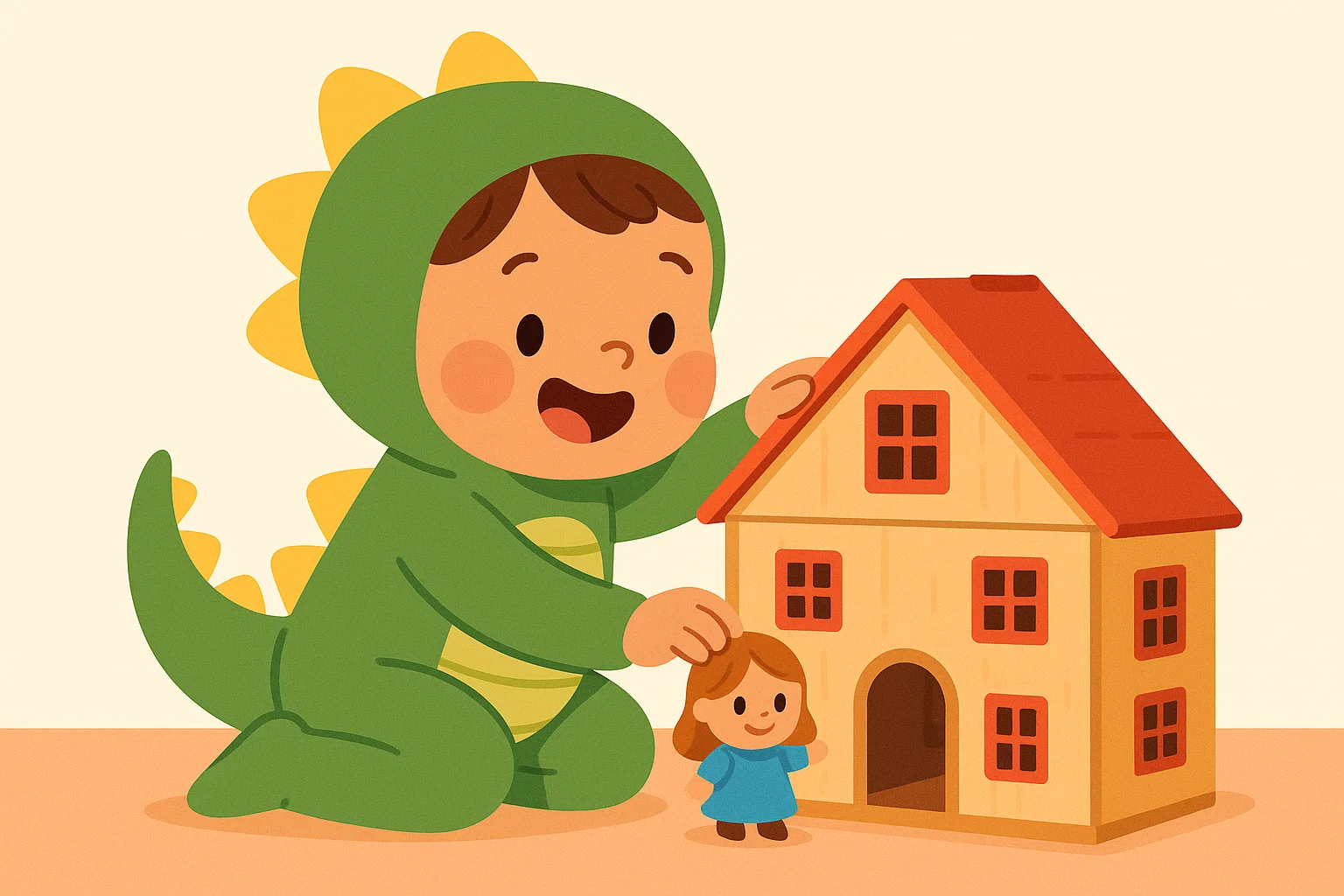
Imaginative play serves as the cornerstone of childhood development, allowing preschoolers to explore different roles, process emotions, and develop social skills. These gifts provide props and inspiration for creative storytelling and role-playing adventures.
Dollhouse Furniture Sets
A well-appointed dollhouse becomes a miniature world where children can act out family scenarios, practice social interactions, and develop narrative skills. Quality dollhouse furniture sets include essential pieces like beds, tables, chairs, and kitchen appliances scaled for popular dollhouse sizes.
Modern dollhouse furniture often features realistic details that spark imaginative play. Sets may include working lights, opening doors, or moveable parts that add authenticity to play scenarios. Children use these props to recreate familiar situations, explore relationships, and practice problem-solving in a safe, controlled environment.
Restaurant Diner Play Sets
Restaurant play sets transform any space into a bustling eatery where preschoolers can explore the hospitality industry. These sets typically include play food, menus, ordering pads, cash registers, and serving accessories. Children take turns being customers, servers, and cooks, developing social skills and language abilities.
Role-playing restaurant scenarios helps children practice communication, math skills through transactions, and organizational abilities. They learn about taking turns, following instructions, and working cooperatively with others. Many restaurant sets feature realistic sounds and interactive elements that enhance the play experience.
Dramatic Roleplay Dress Up
Dress-up clothes unlock endless possibilities for creative expression and character exploration. Quality costume sets for preschoolers include durable fabrics, easy-to-use fasteners, and comfortable fits that allow for active play. Popular themes include community helpers, fairy tales, superheroes, and historical periods.
Dramatic play through costumes helps children explore different identities, build empathy, and develop storytelling skills. They practice putting on clothing independently, which builds self-help skills and confidence. Group dress-up activities encourage cooperation and shared imaginative experiences.
Essential Dress-Up Collection:
- Community helpers (doctor, firefighter, teacher)
- Fantasy characters (princess, superhero, wizard)
- Animal costumes with sound effects
- Historical or cultural outfits
- Accessories like hats, shoes, and props
Picture Books Classics Reading
High-quality picture books remain timeless gifts that support language development, imagination, and bonding between children and caregivers. Classic stories like “Where the Wild Things Are,” “The Very Hungry Caterpillar,” and “Goodnight Moon” have enchanted generations of children with their engaging narratives and beautiful illustrations.
Reading together builds vocabulary, comprehension skills, and emotional intelligence. Children learn about story structure, character development, and different cultures through literature. Interactive books with lift-the-flap features, textures, or sound effects add sensory elements that keep young readers engaged.
Dinosaur Themed Toys
Dinosaur fascination peaks during the preschool years, making prehistoric-themed toys excellent christmas gifts. Quality dinosaur sets include scientifically accurate figures, educational books, and interactive elements like excavation kits or habitat playsets.
Dinosaur play encourages scientific thinking, vocabulary development, and imaginative storytelling. Children learn about different species, time periods, and natural history while engaging in creative play scenarios. Many dinosaur toys incorporate educational elements that satisfy curious minds while providing entertainment.
Interlocking Builder Sets
Interlocking building blocks provide endless construction possibilities while developing fine motor skills and spatial reasoning. Quality builder sets feature blocks that connect securely but separate easily for young hands. Large block sets allow for ambitious building projects and collaborative play.
Building play encourages planning, problem-solving, and creativity. Children learn about balance, symmetry, and structural engineering through hands-on experimentation. These toys support independent play while also facilitating social interaction when children build together.
Artistic Creative Expression
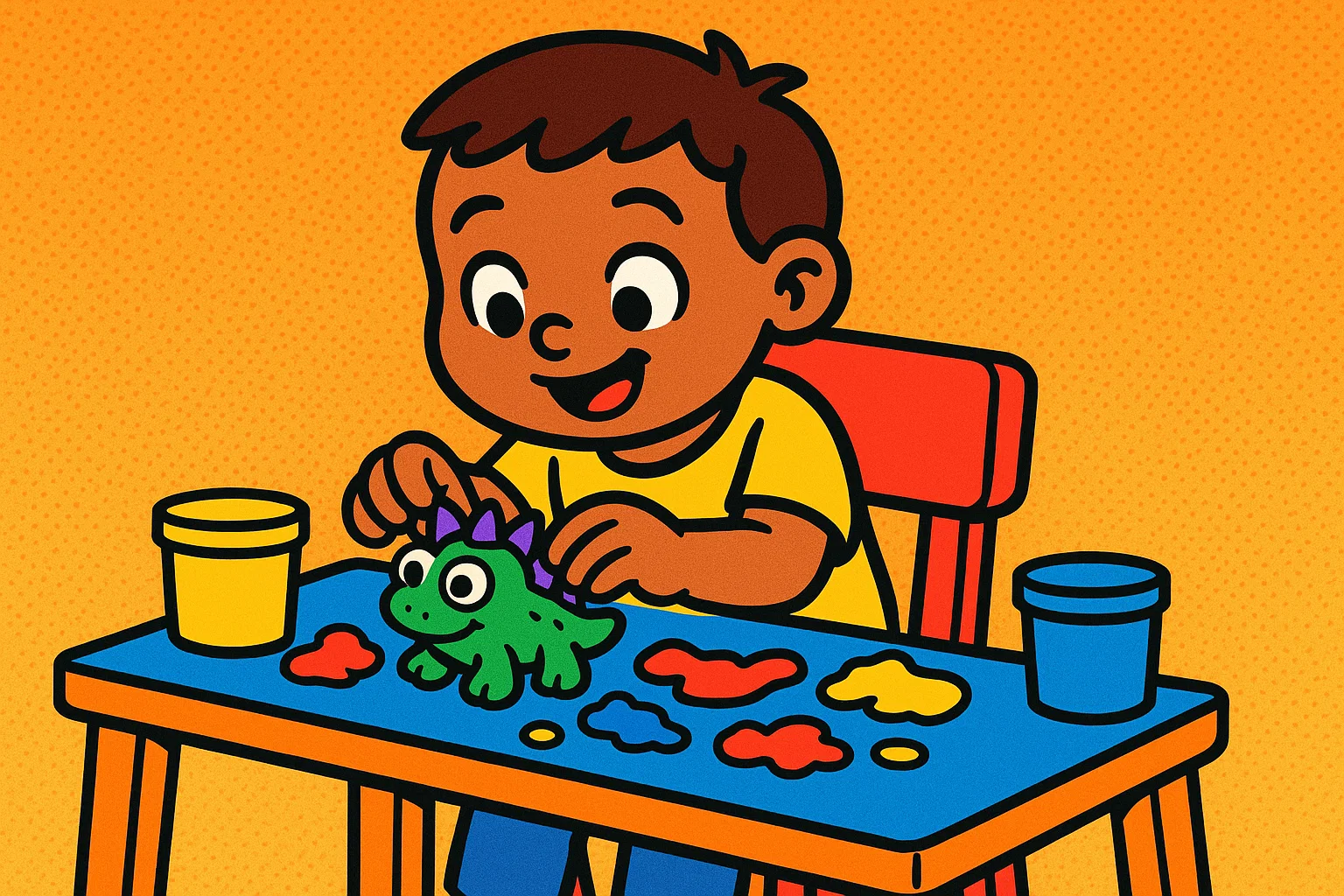
Creative expression tools nurture artistic abilities while supporting emotional development and self-confidence. These gifts provide multiple ways for preschoolers to explore colors, textures, and artistic techniques.
Drawing Sketching Easels Supplies
A dedicated art easel creates an inspiring workspace for young artists to explore drawing and painting. Quality easels feature adjustable heights, storage for supplies, and surfaces suitable for various media. Look for easels with both magnetic whiteboards and chalkboard surfaces for versatility.
Art supplies designed for preschoolers include washable markers, chunky crayons, and mess-free paint options. These tools help children develop fine motor control, color recognition, and artistic confidence. Regular art activities support emotional expression and creative problem-solving skills.
Must-Have Art Supply Checklist:
- Washable crayons and markers (large grip)
- Finger paints and brushes
- Construction paper in various colors
- Child-safe scissors with rounded tips
- Glue sticks and tape
- Stencils and stamps for guided creativity
Play Dough Compound Kits
Play dough provides tactile experiences that support sensory development and creativity. Quality compound kits include multiple colors, sculpting tools, and molds that inspire various projects. Some sets feature themes like bakeries, beauty salons, or construction sites that add narrative elements to play.
Working with play dough strengthens hand muscles needed for writing while encouraging imaginative thinking. Children learn about textures, colors, and three-dimensional design through hands-on manipulation. This open ended activity supports independent play and stress relief.
Sticker Books Fun Projects
Sticker books combine fine motor practice with creative expression in an engaging format. Quality sticker books feature reusable stickers, interesting scenes to decorate, and educational themes that reinforce learning concepts.
Sticker activities develop precise finger movements, pattern recognition, and artistic planning skills. Children practice following directions, making choices, and completing projects independently. These portable activities work well for quiet time, travel, or supervised independent play.
Crafts Homemade Gifts Parents
Craft kits designed for preschoolers provide structured creative projects that result in meaningful keepsakes. These kits typically include all necessary materials and age-appropriate instructions for creating items like decorated picture frames, painted pottery, or holiday ornaments.
Craft projects teach following multi-step directions, using tools safely, and taking pride in completed work. Children experience the satisfaction of creating something special while developing patience and attention to detail. Finished crafts make wonderful gifts for family members, reinforcing the joy of giving.
Scratch Sketch Infinity Pad
Scratch art pads reveal colorful designs as children draw with special styluses. These mess-free art activities are perfect for travel, quiet time, or supervised independent play. The magical reveal effect keeps children engaged while they practice drawing skills and create artistic designs.
Scratch art develops hand-eye coordination, creativity, and focus. Children learn about positive and negative space while experimenting with different drawing techniques. The self-contained nature of these activities makes them convenient for various settings and situations.
Active Movement Physical Play
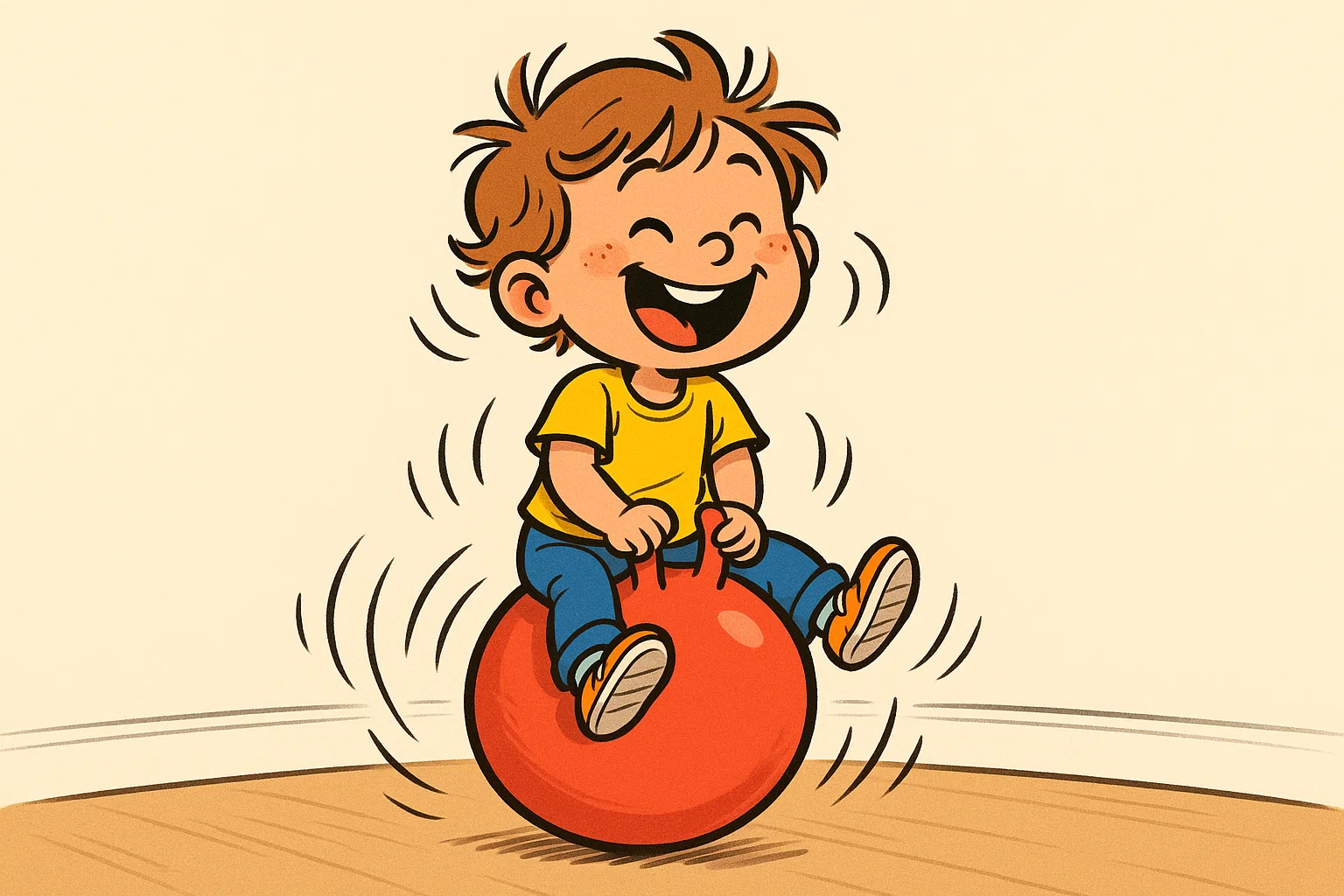
Physical play supports healthy development while helping preschoolers release energy and develop gross motor skills. These gifts encourage movement, coordination, and outdoor exploration.
Bouncy Hopper Balls Ride Ons
Bouncy balls with handles provide energetic fun while developing balance and coordination. Quality hopper balls feature durable construction, comfortable grips, and appropriate sizing for preschool children. These toys encourage active play both indoors and outdoors.
Hopping activities strengthen leg muscles, improve balance, and provide sensory input that many children crave. This type of play supports body awareness, motor planning, and physical confidence. Hopper balls work well for individual play or group games and races.
Balance Coordination Gear
Balance equipment designed for preschoolers includes wobble boards, balance bikes, and stepping stones that challenge stability while building confidence. These tools help children develop core strength, proprioception, and motor planning skills essential for more complex physical activities.
Balance play supports academic learning by improving focus, attention, and sensory processing. Children who develop good balance skills often show improved performance in fine motor tasks like writing and drawing. These activities can be adapted for different skill levels and environments.
Progressive Balance Activities:
- Walking heel-to-toe on floor tape
- Standing on one foot for increasing time
- Balancing bean bags on head while walking
- Simple yoga poses like tree pose
- Walking backwards on balance beam
Gymnastics Balance Beam
Low balance beams designed for home use provide safe opportunities for children to practice walking, balancing, and simple gymnastics movements. Quality beams feature non-slip surfaces, appropriate heights, and stable construction that ensures safety during play.
Balance beam activities develop gross motor skills, body awareness, and confidence in movement. Children learn to control their bodies in space while building strength and coordination. These skills transfer to other physical activities and sports participation later in childhood.
Squiggly Seat Ergonomic Stool
Ergonomic seating options help active preschoolers focus during quiet activities while supporting proper posture and core development. Wobble cushions, balance balls, and flexible seating options provide movement opportunities during sedentary tasks.
Active seating supports attention and learning by providing sensory input that helps children self-regulate. These tools can be particularly beneficial for children who have difficulty sitting still during meals, homework, or quiet activities. The gentle movement helps maintain alertness and engagement.
Backyard Adventure Gear
Outdoor exploration equipment encourages nature connection and physical activity. Adventure gear for preschoolers might include child-sized binoculars, magnifying glasses, collection containers, and exploration journals that turn outdoor time into learning adventures.
Nature exploration supports scientific thinking, observation skills, and environmental awareness. Children develop patience, curiosity, and respect for living things through guided outdoor experiences. These activities provide screen-free entertainment while promoting physical activity and vitamin D exposure.
Family Games Social Skills
Board games and social activities help preschoolers develop important interpersonal skills while creating family bonding opportunities. These gifts teach turn-taking, rule-following, and good sportsmanship in enjoyable settings.
Board Games Beginners
Age-appropriate board games introduce preschoolers to structured play, rule-following, and social interaction. Quality beginner games feature simple rules, short playing times, and engaging themes that hold young attention spans. Cooperative games where everyone works together can be particularly successful with this age group.
Board game play develops counting skills, strategy thinking, and emotional regulation. Children learn to handle winning and losing gracefully while practicing patience and turn-taking. Family game time creates positive associations with structured activities and quality time together.
Best First Board Games:
- Candy Land (color recognition, counting)
- Chutes and Ladders (numbers, consequences)
- Memory matching games (concentration)
- Go Fish (strategy, social skills)
- Cooperative games like Peaceable Kingdom series
Family Act Charades
Acting games designed for young children combine physical movement with creative expression and communication skills. Preschool-friendly charades sets feature simple concepts, picture cards, and themes that children can easily act out and guess.
Charades-style games develop body awareness, creativity, and communication skills. Children practice expressing ideas without words while interpreting others’ actions. These games work well for mixed-age groups and can be adapted for different skill levels and interests.
Matching Games Dominoes Fun
Matching and pattern games help preschoolers develop visual discrimination, memory, and logical thinking skills. Quality matching games feature sturdy pieces, clear images, and progressive difficulty levels that grow with the child’s abilities.
Pattern recognition games support early math concepts, attention skills, and systematic thinking. Children learn to identify similarities and differences while developing strategies for remembering information. These skills transfer directly to academic learning and daily problem-solving.
Observation Games Found It
“I Spy” style games and hidden picture activities develop visual scanning skills, attention to detail, and vocabulary. These games encourage careful observation while building patience and persistence in completing tasks.
Observation games support reading readiness by developing visual tracking and discrimination skills. Children learn to focus attention, process visual information systematically, and communicate their findings clearly. These activities work well for quiet time, travel, or small group play.
Kindness Life Lessons Books
Books that teach social-emotional concepts like kindness, empathy, and friendship help preschoolers develop important life skills. Quality character-building books feature relatable situations, diverse characters, and positive problem-solving strategies.
Social-emotional learning through literature helps children understand feelings, develop empathy, and learn appropriate responses to various situations. These books provide talking points for important conversations about values, relationships, and community responsibility.
Choosing the Perfect Christmas Gift
Selecting the ideal christmas gift for preschoolers involves considering the child’s individual interests, developmental stage, and family preferences. The best gifts combine fun with learning opportunities while matching the child’s attention span and skill level.
Consider the child’s current fascinations – whether they love animals, vehicles, art, or physical activities – and choose gifts that expand on these interests. Look for toys that offer multiple ways to play and grow with the child’s developing abilities. Quality materials and safety certifications ensure that gifts will provide lasting enjoyment.
Gift Selection Tips:
- Match the child’s attention span (10-15 minutes typical)
- Choose toys with multiple play possibilities
- Consider storage and cleanup requirements
- Check age recommendations and safety certifications
- Think about the learning opportunities each gift provides
- Consider gifts that encourage family interaction
Remember that preschoolers often enjoy the packaging as much as the gift itself, and simple pleasures like building forts with boxes can be just as engaging as expensive toys. The most meaningful gifts create opportunities for connection, learning, and joyful play experiences that support healthy development.


